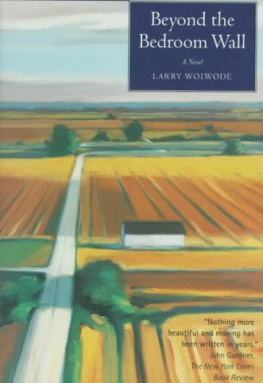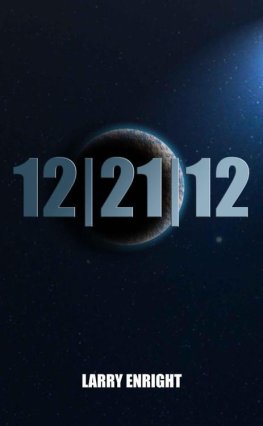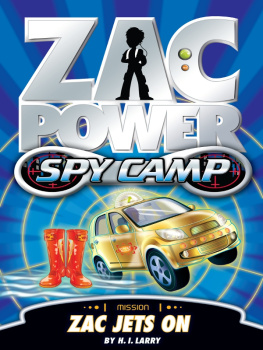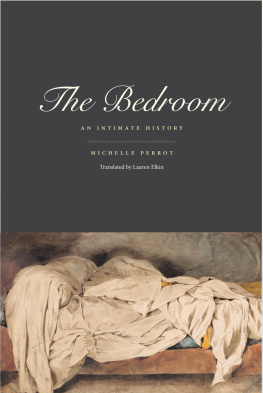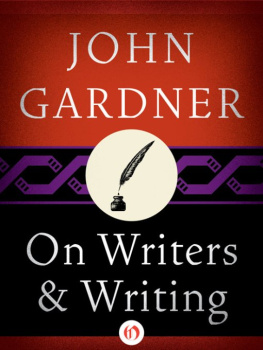Larry Woiwode [Woiwode - Beyond the Bedroom Wall
Here you can read online Larry Woiwode [Woiwode - Beyond the Bedroom Wall full text of the book (entire story) in english for free. Download pdf and epub, get meaning, cover and reviews about this ebook. year: 0101, genre: Detective and thriller. Description of the work, (preface) as well as reviews are available. Best literature library LitArk.com created for fans of good reading and offers a wide selection of genres:
Romance novel
Science fiction
Adventure
Detective
Science
History
Home and family
Prose
Art
Politics
Computer
Non-fiction
Religion
Business
Children
Humor
Choose a favorite category and find really read worthwhile books. Enjoy immersion in the world of imagination, feel the emotions of the characters or learn something new for yourself, make an fascinating discovery.
- Book:Beyond the Bedroom Wall
- Author:
- Genre:
- Year:0101
- Rating:4 / 5
- Favourites:Add to favourites
- Your mark:
- 80
- 1
- 2
- 3
- 4
- 5
Beyond the Bedroom Wall: summary, description and annotation
We offer to read an annotation, description, summary or preface (depends on what the author of the book "Beyond the Bedroom Wall" wrote himself). If you haven't found the necessary information about the book — write in the comments, we will try to find it.
Larry Woiwode [Woiwode: author's other books
Who wrote Beyond the Bedroom Wall? Find out the surname, the name of the author of the book and a list of all author's works by series.
Beyond the Bedroom Wall — read online for free the complete book (whole text) full work
Below is the text of the book, divided by pages. System saving the place of the last page read, allows you to conveniently read the book "Beyond the Bedroom Wall" online for free, without having to search again every time where you left off. Put a bookmark, and you can go to the page where you finished reading at any time.
Font size:
Interval:
Bookmark:
"Reality" ofcourse, is man's most powerful illusion;
but while he attends tothis world, it must outbalance
the total enigma ofbeing in it at all,
ERIK H. ERIKSON
Prelude
Sept. 6, 1800. Near where we are camped [on thewest bank of the Red River of the North, near the confluence of the Red andPark rivers] has been a great game crossing for many years. The ground on bothsides is beaten as hard as a pavement and the numerous roads leading to theriver, a foot deep, are surprising, and when I consider the hard sod throughwhich these tracks are beaten, I am entirely at a loss and bewildered inattempting to form any idea of the numerous herds of buffalo which must havepassed here.
*
Sept. 11. I climbed up a tall oak, which I hadtrimmed for that purpose,... from the top of which I had an extensive viewof the country ...
The weather being perfectly serene, I coulddistinguish the Hair Hills on the W., though they were scarcely perceptible nothing more than a blue stripe, running N. and S. The interval is a levelmeadow, with nothing to attract the eye.
Jan. 14, 1801. At daybreak I was awakened by thebellowing of buffaloes... The plains were black, and appeared as if inmotion, S. to N....
I had seen almost incredible numbers of buffaloin the fall, but nothing in comparison to what I now beheld. The ground wascovered at every point of the compass, as far as the eye could reach, and everyanimal was in motion.
*
April 1, Wednesday. The river clear of ice, hutthe drowned buffalo continue to drift down by herds... It really isastonishing what vast quantities must have perished, as they formed onecontinual line in the middle of the river for two days and two nights.
*
From the manuscriptjournals of Alexander Henry, one of the first English-speaking explorers toenter North Dakota.
THE STREET
Every night when Im notable to sleep, when scrolls of words and formulas unfurl in my mind and facesof those I love, both living and dead, rise from the dark, accusing me ofapathy, ambition, self-indulgence, neglectall of their accusations justandthere's no hope of rest, I try again to retrace the street. It's an unpavedstreet and it's the color of my hand. It's made up mostly of the clayey gumbofrom the flat and tilting farmland all around this village so small it can beseen through from all sides, and its ungraded surface is generally overrun withruts that are slippery and water-filled in spring, ironlike in summer, furredin fall with frost as phosphorescent as mountainy ridges on the moon's crust,and in winter buried beyond all thought except for any thought that clay orgravel or the booted feet of people crossing ice-covered snow above might have.It's the main street of Hyatt, North Dakota, and it's one block long. I lived inHyatt from the time I was born until I was six and returned only once, at theage of eight, wearing a plaid jacket exactly like my brother's, too light forthe weather, and ran up and down this street with changed friends, playing hide-and-seekbetween buildings that stand deserted, now that time has had its diminishingeffects.
Every night I approachthe street in the same way, from the east, along a long building that shieldsit from me until the last moment of unbelievability is banished by its beingthere. The building was once the machine shed of a John Deere implement dealer,so my father's told me, and is now the Town Hall and high-school gymnasium;this side is surfaced with sheets of tin die-pressed to simulate brick, and theshining gray sheets slant up and down, their seams mismatched, shifting inangle or height or declination with every other step I take, and then I reachout, as I always do, and run my fingertips along the tin. Some nights I feelthe entire building will collapse and be revealed as cardboard, and on othernights it's as firm to my touch as my wife's arm at this hour.
The Town Hall is theheart of Hyattthe sports arena, the theater, the polling place, the moviehouse, the dance hall, and the band building, the social retreat, theinoculation center, the courthouse, the village palace with its changing set ofkings, and every Thursday evening during the winter, when a man from Fessendenwheels a wooden crate mounted on skate rollers into the building and seatshimself on a stool like the stools used by shoe salesmen, and straps on skates,the Town Hall is a noisy roller rink.
I come to the corner ofthe building and turn south on Main Street. At its far end I can see the raisedroadbed and shining rails of the Soo Line, and, beyond the rails, flanking andtowering high above the Western store fronts of the street, four grainelevators, one a faded barn-red with a green roof, and the other three, builttogether in a cluster, silver-gray. A quarter way down one of them, in blackletters ten feet tall, I read N. J. LUDVIG & CO., and when the period afterCO starts falling with sidewise swipes toward the ground, I know it's only apigeon diving after spilled grain, a luncheon along individual lines, a new dayfor him, a new hour, a new time.
I start down the street,on a high-curbed sidewalk fractured and crumbling from severe freezes, and passthe front doors of the Town Hall, which are open, folded back in rectangles ofknotty pine against the white siding, and hooked in place. There's a patrioticceremony going on inside. My father is ready to give the reading he's beenrehearsing at home for a week, and I sit in the audience, beside my mother,filled with a fathomless fear for her and my father. I wait until his voicemakes its last swirl of lariatlike cadenzas in the air, and concludes with awhisper, and hear a spatter of applause, and am content, and then a rising washof response like the sea. I walk on.
Next, a vacant lotovergrown with weeds, with a gray path winding through it to the end of memory,a lot that's flooded in the winter for skating and hockey, and then Friedrich'sMeat Market, where stout H. P. Friedrich, wearing steel-rimmed spectacles and awhite towel around his waist, mixes up in washtubs with his bare hands anincomparable brand of farm-style sausage, the spiciest the Northern palate canhandle and still be pleased. And after Friedrich's comes
I can't remember. Ican't remember the building, the business carried on in it, or who it should bein its doorway, and this adds to my sleeplessness, is an ominous sign, so Iturn in bed and try to work around to it along a less obvious line oftangentiality. Mr. Friedrich has powerful arms. He works with his sleevesrolled up, and the cords in his arms whiten and muscles bulge beneath hisshirt. His face and cheeks are round and flushed and his steel-rimmedspectacles are often fogged. Tucked once along the trim of my father's roll-topdesk was a photograph of Mr. Friedrich on the high-school steps, with 1913 onthe lintel above him, wearing a cap with the ear-flaps folded down and a lineddenim jacket buttoned tight at his throat; fuzzy gloves on his hands, thegold-colored ones that were worn then, by the looks of them; his even teethbared in the smile of somebody unaccustomed to a camera. His first name isHerman. "I wonder if Herman will have the school warm this morning,"I hear my father say, and see Mr. Friedrich in the boiler room in the basementof the school, a bulky silhouette against the glow of the open furnace he'sstoking with coal. Besides being the butcher, he's the custodian and repairmanat the public school, and on the mornings when the bell in the big and lofty,barnlike church a block away rings especially loud, summoning to weekday Massthe parochial-school children (a requirement), and nearly all the rest of thevillage, which is ninety-percent Catholic, I know that the usual bell ringer,Lowell Russell, a sickly man but the progenitor of twelve children, is ill inbed again, and the rope is being pulled by the powerful arms of Mr. Friedrich.His meat market is tan and its trim is chocolate brown, and next to
Next pageFont size:
Interval:
Bookmark:
Similar books «Beyond the Bedroom Wall»
Look at similar books to Beyond the Bedroom Wall. We have selected literature similar in name and meaning in the hope of providing readers with more options to find new, interesting, not yet read works.
Discussion, reviews of the book Beyond the Bedroom Wall and just readers' own opinions. Leave your comments, write what you think about the work, its meaning or the main characters. Specify what exactly you liked and what you didn't like, and why you think so.

